How Do You Keep Senior Dogs Active and Engaged?
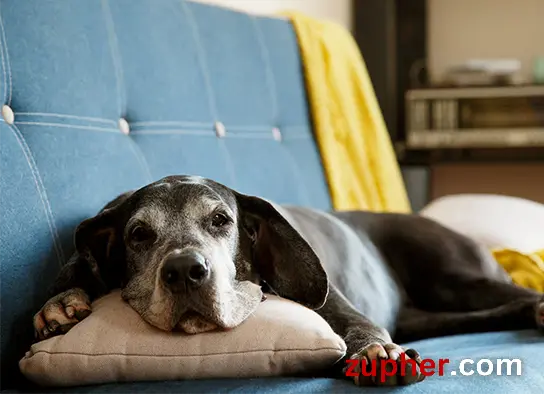
Introduction
Senior dogs, like older people, have special needs. It’s vital to understand these needs and find ways to keep them active and engaged. This ensures their physical health and mental happiness.
A. Brief Overview of Senior Dogs and Their Unique Needs
Senior dogs are older dogs who may have slower movements and more health issues. They’re like grandparents of the dog world. Just like older people, they need extra care and attention to stay healthy and happy.
B. Importance of Keeping Senior Dogs Active and Engaged for Their Physical and Mental Well-being
Keeping senior dogs active and engaged is super important! It helps them stay fit and happy. Imagine if your grandparents just sat around all day. They’d get bored and maybe even sad. It’s the same for senior dogs. They need activities to keep them moving and thinking. This keeps their bodies and minds healthy. So, it’s our job to make sure they have fun things to do!
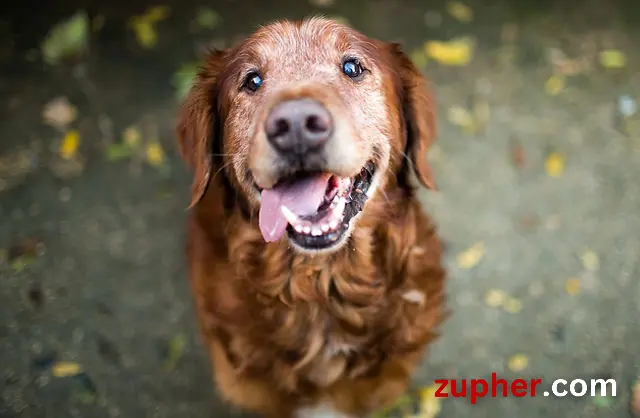
Understanding the Needs of Senior Dogs
To keep senior dogs happy and healthy, we need to understand their special needs. Let’s dive into what those are.
A. Physical Limitations and Health Concerns Commonly Seen in Senior Dogs
As dogs get older, just like people, they might have trouble moving around as easily. They might have achy joints or not see or hear as well as they used to. These physical changes can make it harder for them to stay active and engaged.
B. Behavioral Changes and Cognitive Decline in Aging Dogs
As dogs age, they can experience changes in their behavior and thinking. They might seem confused or forgetful at times. Imagine if your grandparents started forgetting things or acting differently. It’s similar to senior dogs. These changes can affect how they interact with the world around them.
C. How Age Impacts Activity Levels and Engagement in Senior Dogs
Age can affect how much energy senior dogs have and how interested they are in activities. Just like older people might prefer quieter activities, senior dogs might not be as keen on running around like puppies. It’s important to find activities that match their energy levels and interests to keep them engaged.
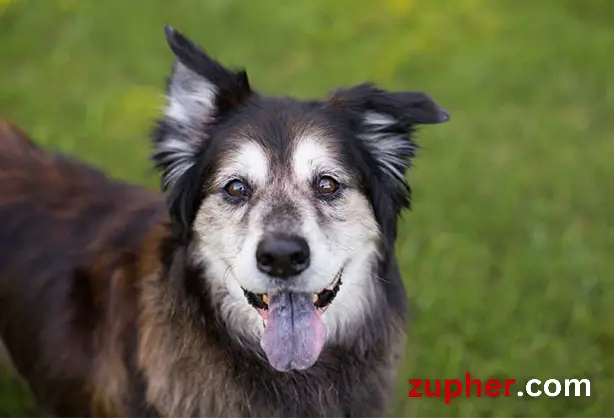
Tailoring Exercise Routines for Senior Dogs
To keep senior dogs happy and healthy, we need to create exercise routines that suit their older bodies and minds. Let’s explore how to do that.
A. Low-Impact Exercises Suitable for Aging Joints and Muscles
Senior dogs might have achy joints or muscles, just like older people. So, we need to choose exercises that are gentle on their bodies. Think of it like doing yoga instead of running a marathon. It’s all about keeping them moving without causing any pain.
B. Incorporating Mental Stimulation into Exercise Routines
Exercise isn’t just about moving the body—it’s also about keeping the mind active. For senior dogs, this might mean adding puzzles or games into their routine. It’s like giving them a brain workout while they stretch their legs. This keeps their minds sharp and engaged.
C. Importance of Regular, But Gentle, Physical Activity for Maintaining Mobility and Joint Health
Even though senior dogs might not be as energetic as they once were, it’s still important for them to move their bodies regularly. Gentle activities like short walks or swimming can help keep their muscles strong and their joints flexible. It’s like giving them a little daily dose of medicine to keep them feeling their best.
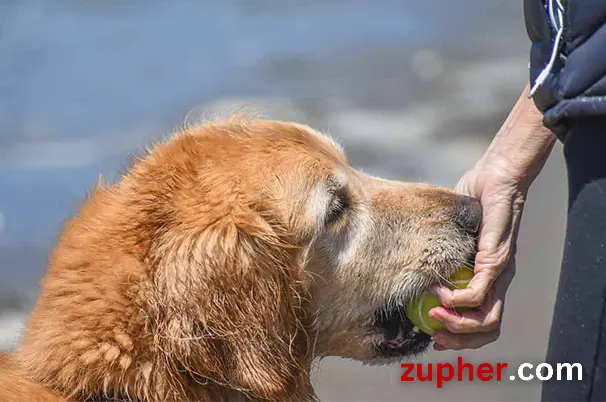
Enrichment Activities for Senior Dogs
Now, let’s talk about fun ways to keep senior dogs entertained and mentally sharp.
A. Puzzle Toys and Interactive Games to Stimulate Cognitive Function
Just like how solving puzzles can be fun for us, it’s also great for senior dogs! Puzzle toys and games challenge their brains and keep them thinking. It’s like giving them a fun brain workout that keeps them sharp and focused.
B. Scent Work and Nose Games to Engage Their Senses
Senior dogs love using their noses—it’s like their superpower! Scent work games, where they have to find hidden treats or toys by following their nose, are perfect for them. It’s like a treasure hunt that keeps them sniffing and exploring.
C. Incorporating Variety and Novelty to Prevent Boredom and Promote Mental Stimulation
Imagine eating the same food every day—it would get pretty boring, right? Well, senior dogs feel the same way about their activities! Adding new games, toys, or experiences keeps things exciting and interesting for them. It’s like adding a little spice to their lives to keep them curious and engaged.
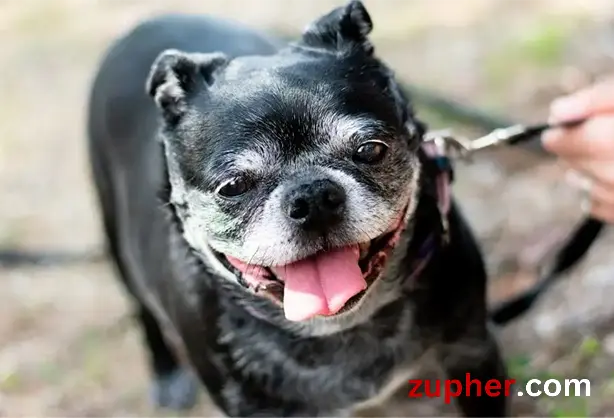
Adapting the Environment for Senior Dogs
To help senior dogs stay happy and active, we need to make some changes to their living space. Let’s see how.
A. Creating a Safe and Accessible Living Space for Senior Dogs
Senior dogs might not be as agile as they once were, so we need to make sure their environment is safe for them to move around in. That means removing obstacles and making sure they have easy access to everything they need, like food and water bowls.
B. Modifications to the Home Environment to Accommodate Mobility Issues
Just like we might install handrails or ramps for older people, we can make similar changes for senior dogs. Ramps or steps can help them get on and off furniture more easily, and non-slip mats can prevent slips and falls. It’s like creating a senior-friendly home just for them!
C. Importance of Comfortable Resting Areas and Quiet Spaces for Relaxation
Senior dogs need plenty of rest, just like anyone else. That means providing them with comfortable beds or blankets in quiet areas where they can unwind. It’s like having a cozy spot to curl up in after a long day—it helps them recharge and stay happy.
Socialization and Bonding Opportunities
Now, let’s talk about ways to keep senior dogs social and connected.
A. Encouraging Social Interaction with Other Dogs and Humans
Just like us, senior dogs enjoy spending time with friends! Whether it’s with other dogs at the park or chatting with friendly humans on a walk, socializing keeps them happy and engaged. It’s like having a little doggy party every time they meet someone new!
B. Participation in Senior-Specific Dog Activities and Classes
There are special activities and classes designed just for senior dogs! These can include gentle exercises, games, or even doggy dance parties. It’s like going to a fun club where everyone is the same age and has similar interests. These activities help senior dogs stay active and make new friends.
C. Incorporating Bonding Exercises to Strengthen the Relationship Between Senior Dogs and Their Owners
Senior dogs love spending quality time with their owners! Simple activities like cuddling, gentle massages, or playing gentle games together strengthen the bond between them. It’s like having a special secret handshake that only they understand. These bonding exercises make both the dog and their owner feel loved and connected.
Nutritional Considerations for Senior Dogs
Now, let’s talk about what senior dogs should eat to stay healthy and active.
A. Importance of a Balanced Diet Tailored to the Needs of Aging Dogs
Just like older people might need different foods to stay healthy, senior dogs have special dietary needs too! A balanced diet with the right mix of proteins, fats, and carbohydrates helps keep their bodies strong and their energy levels up. It’s like giving them the perfect fuel to keep them going!
B. Supplements to Support Joint Health and Cognitive Function in Senior Dogs
Sometimes, senior dogs might need a little extra help to stay healthy. Supplements like glucosamine or omega-3 fatty acids can support their joints and brain health. It’s like giving them vitamins to keep their bodies working smoothly. These supplements can help senior dogs feel their best as they age.
C. Consulting with a Veterinarian for Personalized Dietary Recommendations
Every senior dog is different, so it’s essential to talk to a veterinarian about their specific needs. A vet can recommend the best food and supplements for your dog’s age, health, and activity level. It’s like having a personalized nutrition plan designed just for them. With the vet’s guidance, you can ensure your senior dog gets all the nutrients they need to thrive.
Regular Veterinary Check-ups and Monitoring
Let’s talk about why it’s important to take senior dogs to the vet regularly.
A. Importance of Regular Health Assessments for Senior Dogs
Just like how we go to the doctor for check-ups, senior dogs need regular visits to the vet. These check-ups help the vet catch any health issues early on before they become serious. It’s like getting a regular tune-up for your car to keep it running smoothly.
B. Monitoring Changes in Behavior, Appetite, and Mobility
Senior dogs can’t tell us when they’re not feeling well, so it’s essential to keep an eye on any changes in their behavior, appetite, or how they move around. If they start acting differently or seem less interested in things they used to enjoy, it could be a sign that something’s wrong. It’s like being a detective and looking for clues to figure out what’s going on with them.
C. Early Detection and Management of Age-Related Health Issues to Maintain Quality of Life
By catching health issues early, vets can start treatment right away, which can help senior dogs feel better and stay active longer. It’s like putting out a small fire before it spreads and causes more damage. Regular vet check-ups and monitoring help ensure that senior dogs can enjoy a happy and healthy life for as long as possible.
Conclusion
Let’s sum up what we’ve learned about caring for senior dogs.
A. Recap of Key Strategies for Keeping Senior Dogs Active and Engaged
We’ve talked about a lot of ways to keep senior dogs happy and healthy, like gentle exercises, mental stimulation, and regular vet check-ups. It’s all about finding what works best for your furry friend and sticking with it.
B. Emphasis on the Importance of Individualized Care and Attention for Aging Pets
Each senior dog is special, so it’s crucial to customize their care accordingly. What works for one dog might not work for another, so pay attention to what makes your dog happiest and healthiest.
C. Encouragement for Owners to Prioritize the Well-being of Their Senior Canine Companions
Senior dogs have given us so much love and joy over the years, so it’s our turn to take care of them in their golden years. By following the strategies we’ve talked about, we can ensure that our senior canine companions live their best lives for as long as possible. Let’s make sure they know how much they’re loved and cherished every day.
People also ask
How do I engage my senior dog?
Engage them with gentle exercises and mental stimulation activities like puzzle toys.
How do I keep my senior dog entertained?
Provide them with toys, games, and activities suitable for their age and abilities.
How do you enrich a senior dog’s life?
Enrich their life by incorporating variety, socialization, and bonding activities.
How can I stimulate my senior dog?
Stimulate them with interactive toys, scent work, and short walks.
How do you motivate an old dog?
Motivate them with treats, positive reinforcement, and activities they enjoy.
What do senior dogs do all day?
They rest, play, eat, and enjoy short walks or gentle activities.



